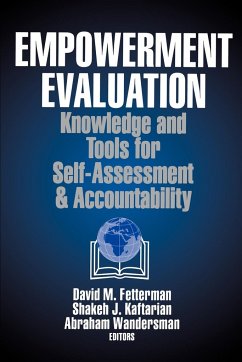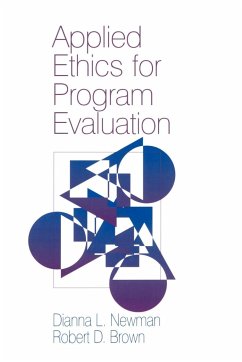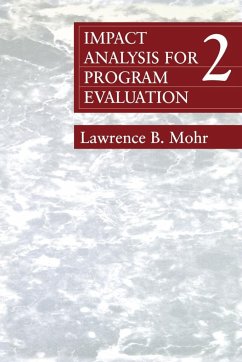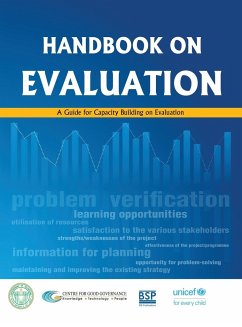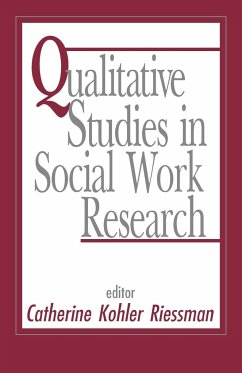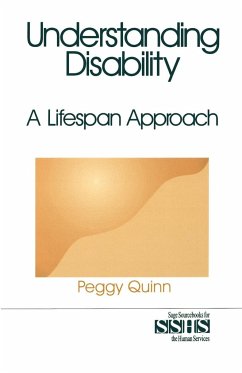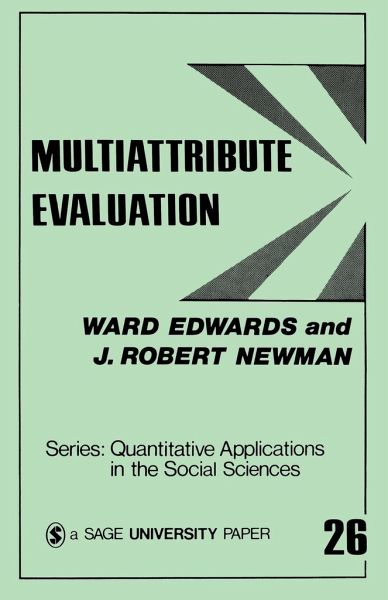
Multiattribute Evaluation
Versandkostenfrei!
Versandfertig in 1-2 Wochen

PAYBACK Punkte
22 °P sammeln!




As budgets tighten and costs increase, it is becoming even more necessary that workable social programmes are shown to be worthy of support. This book presents one approach to evaluation -- multiattribute utility technology -- which stresses that evaluations should be comparative, and that all the different constituencies served by a programme and its different goals have to be kept in mind.
Psychologist Ward Edwards, a former faculty member in USC College's department of psychology and the USC Viterbi School of Engineering's Daniel J. Epstein department of industrial and systems engineering, died Feb. 1, after a long battle with Parkinson's disease. He was 77. Edwards was an internationally known authority on statistical decision analysis and behavioral decision research, a field he pioneered. Edwards retired from USC in 1995, after a career that included teaching at Harvard, Johns Hopkins and the University of Michigan. At USC, he served as director of the Social Science Research Institute from 1973 to 1995, and was a professor of psychology and of industrial and systems engineering. In 1998, Edwards was honored with USC's Distinguished Emeritus Award. Edwards was instrumental in bringing Sarnoff Mednick, the current director of the Social Science Research Institute, to USC. The pair met while riding an escalator in a Copenhagen department store. "Ward was riding down and I was riding up," says Mednick, professor of psychology at USC College. "We had dinner together that evening. Some months later I agreed to take the position at USC. I am now director of the Institute that Edwards directed when we first met." Edwards' early research aimed to better understand how people make decisions and to find ways to help people make wise ones. He used both experimental and modeling approaches. In the mid-1950s, Edwards wrote several articles that were instrumental in establishing the field of behavioral decision research. This field is well known today through its applications in behavioral finance and behavioral economics. Recently, the field garnered more attention with the award of the Nobel Prize in economics to one of its leading practitioners, Daniel Kahneman. Increasingly interested in applying Bayesian statistical ideas to decision-making models, Edwards founded the Bayesian Research Conference in 1962 and led it for the next 40 years. In the 1980s, he focused more of his research on the use of Bayesian and decision-analytic ideas in artificially intelligent systems and developed HAILFINDER, a computer-based system designed to predict severe weather in Colorado. He was a recipient of the Franklin V. Taylor Award from the Society of Engineering Psychologists, the Frank P. Ramsey Medal from the Operation Research Society of America and the Distinguished Scientific Contribution Award in Applied Psychology from the American Psychological Association. Edwards was a prolific author and contributor to professional journals. He wrote and co-wrote four books, including the seminal "Decision Analysis and Behavioral Research" (with Detlof von Winterfeldt). In 1999, he was honored with a volume of tributes titled "Decision Science and Technology: Reflections on the Contributions of Ward Edwards." He also served as president of his own company, Wise Decisions Inc. Edwards earned a bachelor's from Swarthmore College, and a master's and doctorate from Harvard University.
Produktdetails
- Verlag: Sage Publications
- Seitenzahl: 100
- Erscheinungstermin: 1. Oktober 1982
- Englisch
- Abmessung: 216mm x 140mm x 6mm
- Gewicht: 138g
- ISBN-13: 9780803900950
- ISBN-10: 0803900953
- Artikelnr.: 22242993
Herstellerkennzeichnung
Libri GmbH
Europaallee 1
36244 Bad Hersfeld
gpsr@libri.de
Für dieses Produkt wurde noch keine Bewertung abgegeben. Wir würden uns sehr freuen, wenn du die erste Bewertung schreibst!
Eine Bewertung schreiben
Eine Bewertung schreiben
Andere Kunden interessierten sich für




